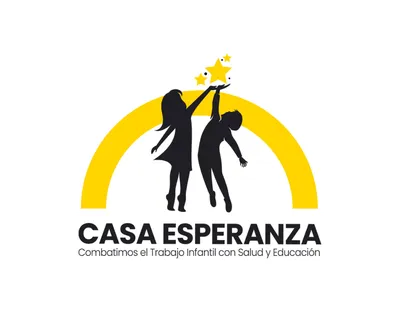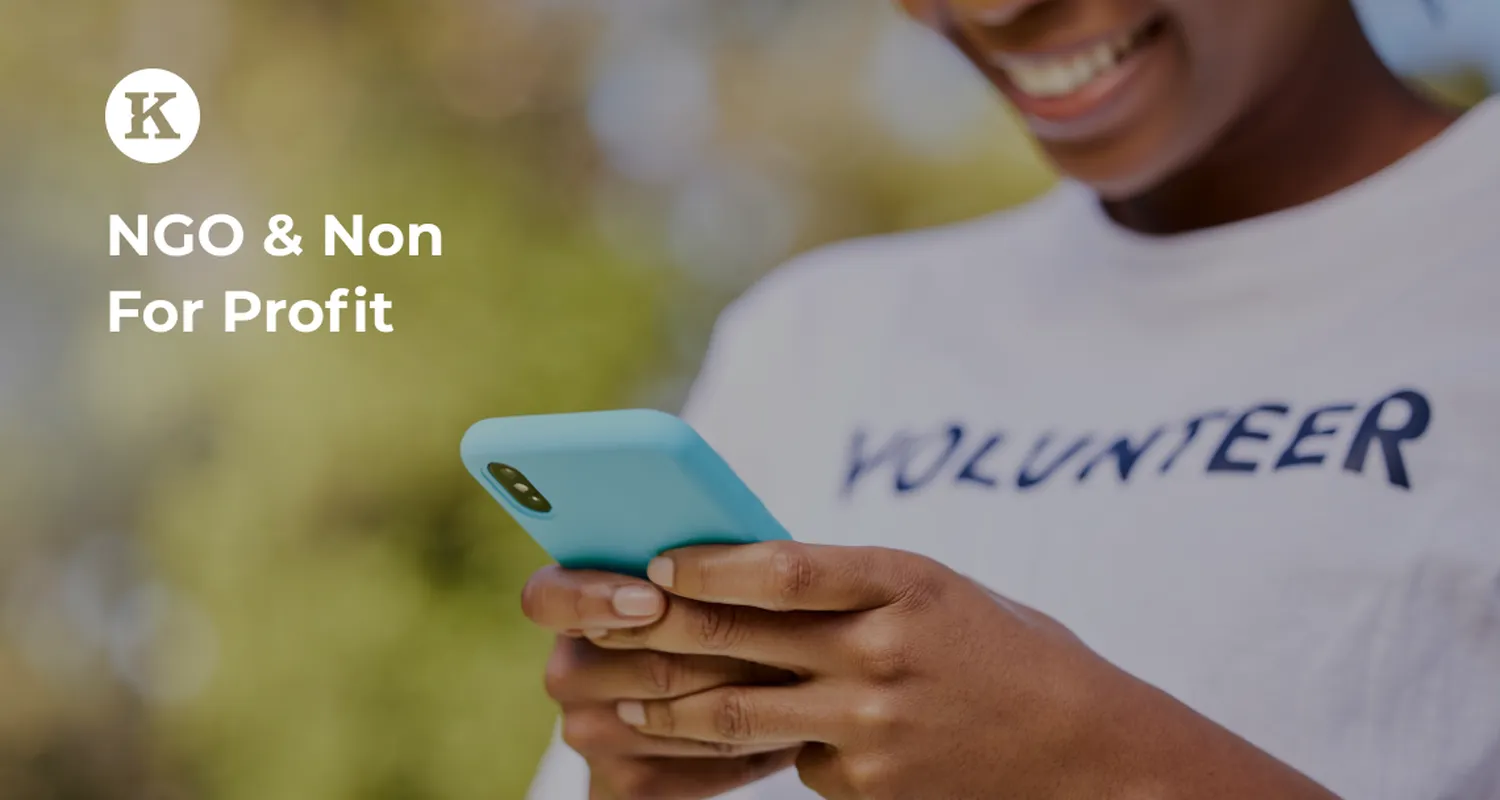We spoke to three visionary leaders about how AI and data analytics are reshaping the way nonprofits operate, from crisis prediction to donor engagement. Their perspectives highlight both the transformative potential of these technologies and the practical challenges of adoption - from data gaps and limited infrastructure to ethical concerns and skills shortages. Together, they share a roadmap for how NGOs can build the internal capabilities, strategic partnerships and governance needed to harness AI and data analytics responsibly and drive meaningful impact.

Nadia Virasamy, CEO, Moving Into Dance emphasise that the strategic integration of AI and advanced data analytics can offer immense benefit to the not-for-profit sector by optimising decision-making processes that could lead to the amplification of philanthropic outputs. ‘Providing access to the processing of vast datasets, identification of data patterning and generating insights can be revolutionary for the NPO from an R&D platform. It could also impact resource allocation, offering new perspectives on problem-solving and enhancing programme implementation from an evidence-based premise. By harnessing these technologies, NPOs can move beyond traditional methods, gaining a deeper understanding of the communities they serve and the complex challenges they address.’
‘AI has three main areas: Generative AI, machine learning and deep learning,’ explains Sonny Iroche, Senior Academic Fellow, African Studies Centre, University of Oxford 2022-2023. ‘While AI began in the 1950s, it gained momentum in 2019 with OpenAI's ChatGPT-2. Machine learning helps NGOs handle large datasets, improving healthcare, migration monitoring and tracking other activities. As AI advances, it can address global challenges in poverty, agriculture, healthcare, transportation and more.

AI and data analytics enhance decision-making. Data are the engine of artificial intelligence, helping to define intervention strategies and track assistance delivery. In regions like Nigeria and Sierra Leone, poverty primarily affects women, while women and children are the most vulnerable in war-torn areas. Predictive analytics, powered by machine learning, forecasts issues like poverty, conflict and famine, as well as specific needs such as nutrition, hygiene and displacement. NGOs in agriculture should leverage AI to predict weather patterns, while AI can also forecast pestilence and migration patterns for famine relief efforts.
In terms of data analytics, Africa lacks sufficient data for AI, which relies on it to analyse and predict outcomes. There are 11,800 data centres globally, with the US owning about 5,800. The rest are scattered across China, Japan, the UK and Europe, while Africa has only 179. Inaccurate data, such as Nigeria’s population estimates, hinders planning. AI can provide more accurate estimates with a margin of error of just 1.5%.’

Angélica La Vitola Martino, Director, Casa Esperanza points out that AI and data analytics are transforming how NGOs make data-driven decisions that optimise both operations and impact. ‘Predictive analytics helps NGOs anticipate donor behaviour and workforce needs, enabling better planning and prioritisation. Fundraising is one area where AI has made a huge difference. By analysing donor giving patterns, AI allows organisations to tailor outreach based on past donation behaviour and interests. AI-powered chatbots can handle donor inquiries, freeing up staff to focus on more impactful tasks, strengthening relationships and boosting fundraising efforts.
In humanitarian response, AI analyses satellite images, social media data and historical trends to predict disasters and the needs of affected communities. This helps NGOs act proactively, whether sending aid before a hurricane or preparing for refugee movements due to conflict. From an HR perspective, AI supports contingency workforce planning by ensuring the right people are deployed where they’re most needed.
By integrating AI and data analytics into HR and operations, NGOs can scale their impact, build more resilient organisations and work smarter while aligning with their mission and workforce needs.‘
What ethical, accessibility and security challenges do NGOs face when adopting AI-driven data strategies?

‘The Harvard Gazette recently published an article on growing ethical concerns using AI data strategies. Issues around accountability and transparency were brought to light as one realised there is no way of ascertaining if structural bias is consciously or unconsciously encoded into a programme. Additionally, the reliance on decisions made through CG programmes eliminates accountability and responsibility for decisions, creating another complex ethical issue. The more obvious challenges would be the security of data, accessibility to it and finally, protection of information potentially easily solved within the AI space, but what of the future of the data post-research?’ says Nadia Virasamy.
As Angélica La Vitola Martino notes, AI adoption in NGOs does come with ethical challenges. ‘While issues like bias, data privacy and transparency have already been highlighted, it’s essential to ensure AI systems are tailored to the unique needs of the communities served. In addition to addressing bias in data and ensuring informed consent, NGOs must focus on maintaining human oversight in decision-making. Many NGOs serve vulnerable populations, so individuals must clearly understand how their data is used. Transparency is key - organisations should avoid relying on “black box” AI systems that lack clear explanations.

Accessibility remains a significant barrier, as many NGOs lack the infrastructure, resources or expertise to effectively implement AI tools. Poor data quality further limits the value of AI insights. Digital literacy is another challenge, both for the NGO staff and the communities they serve, as they may struggle to use complex or non-intuitive systems, reducing impact.
Data security remains a concern, particularly when NGOs handle sensitive information like refugee or donor records. Additionally, ensuring proper governance over data usage, especially when third-party AI providers are involved, is critical. NGOs must establish clear protocols on how data is accessed and used to maintain control and protect privacy. They should implement strong governance policies to ensure that AI systems are transparent and fair. AI should be a tool that empowers NGOs, not one that creates new risks or erodes trust.’
Sonny Iroche explains that before adopting AI, NGOs must assess their AI readiness at the board level. ‘In Oxford, we developed the 4C model:
- The first C is Constituents: The board, directors and managers must be committed to AI adoption. Staff must understand that AI won’t replace jobs, but those who learn AI will thrive.
- The second C is Capabilities: It’s important to assess whether staff have the skills to use AI effectively. Training programmes are crucial to addressing fears about job displacement.
- The third C is Competence: It is crucial to evaluate the level of skill within the staff regarding the effective use of AI tools and systems.
- The fourth C is Culture: The organisational culture should be considered—whether it’s mainly paper-based or ready for the digital transformation needed for AI integration.
When assessing an NGO’s AI readiness, the first step is agreeing on the need to prepare for AI adoption. Is the NGO large enough to invest in AI, such as banks utilising LLMs (Large Language Models)? Recently, smaller language models have emerged, as the initial focus was on larger models such as neural networks. For instance, my organisation collaborates with Microsoft and always assesses AI readiness before recommending an AI model. Key factors include budget, objectives, geographical coverage (e.g., West or East Africa) and ensuring cultural sensitivity. The NGO must be AI-ready before adoption.
Due to ethical and security risks, the company must adopt an AI policy banning non-business or harmful use. Staff usage will be audited to ensure compliance. As with financial audits, every company should establish an AI policy. In the global North, many firms now appoint Chief AI Officers to oversee ethical AI use.’
How can NGOs build the necessary skills and partnerships to successfully implement AI and data analytics in their initiatives?
‘There are many AI courses available online and some individuals claim to be AI experts, yet generative AI is only three years old,’ notes Sonny Iroche. ‘To be considered an AI professional, certification or oversight by a governing body should be required. In Nigeria, I often hear people say, 'This man gives us lessons in AI,' which is concerning. As a senior fellow, I’ve also completed postgraduate studies in AI, so I recognise the risks of misinformation and incomplete knowledge. It is essential to train people through reputable institutions.
AI isn’t just computer science. Some build the systems while others use them. We didn’t create Office or PowerPoint, but we know how to use them. At Oxford, for example, more than 15 departments focus on AI, including business, mathematics and molecular biology. Training is critical, and partnerships with leading institutions are essential to advancing AI education across regions.’
According to Nadia Virasamy, NPOs must be open-minded about how AI can add value to the sector. ‘Data mining techniques can uncover hidden patterns and correlations within large datasets, offering valuable insights into beneficiary behaviour, programme performance and the effectiveness of various interventions. NPOs collaborating with established research programmes within academic structures or private research entities that share similar datasets could provide valuable insights without a significant financial investment. Additionally, this approach could help reduce community research fatigue.’
‘Strategic partnerships come in when NGOs don’t have the resources for in-house AI expertise,’ states Angélica La Vitola Martino. ‘They need not do everything themselves. Collaborating with universities, tech companies and AI research groups can provide access to expertise, tools and mentorship. Many tech firms offer pro bono AI consulting, grants or discounted software for nonprofits. Partnering with other NGOs that are further along in their AI journey can also be a great way to share knowledge and best practices.
A good starting point is identifying key areas where AI can add value – whether it’s improving decision-making, optimising fundraising or enhancing service delivery. From there, NGOs can begin small by using low-cost or open-source AI tools before scaling up.
AI should always serve the organisation’s core mission rather than becoming a distraction. NGOs should align their AI strategy with their long-term goals and continuously assess whether these technologies are helping to improve impact. Regular feedback from staff, donors and the communities they serve can help ensure that AI remains a tool for empowerment rather than an unnecessary burden.’
Summary
AI and data analytics are no longer optional for NGOs. They’re becoming essential tools for driving meaningful impact in an increasingly complex world. As shown by the insights of three sector leaders, these technologies are helping nonprofits make smarter decisions, improve operations and respond more effectively to crises. But adoption is not without challenges. From ethical concerns and data quality to infrastructure and skills gaps, NGOs must proceed strategically. Building partnerships, investing in training and aligning AI use with mission goals are critical steps toward ensuring that innovation truly serves the communities that need it most.
The Kestria NGO and Not For Profit Practice Group is a crucial ally for organisations transitioning services traditionally managed by governments. With deep industry knowledge, this group addresses the complexities of shifting responsibilities to NGOs and NFPs, which are increasingly vital in tackling global issues across borders. Kestria specialises in identifying social entrepreneurs who deliver innovative solutions and demonstrate tangible returns to stakeholders, thereby enhancing people's lives.


